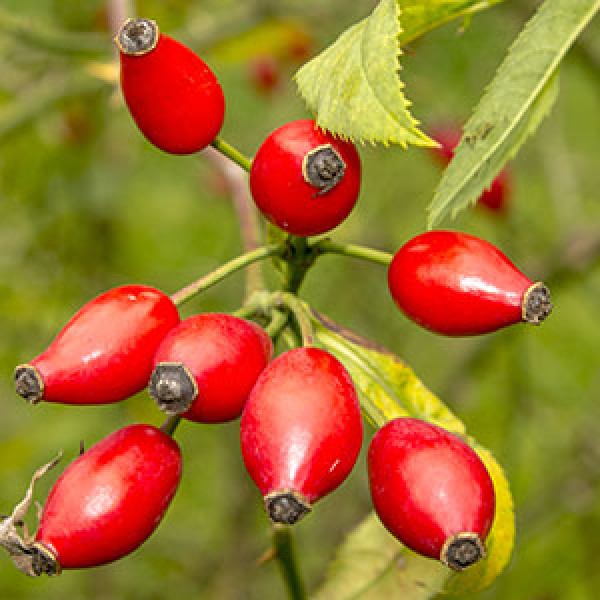| We do a few things in this gorgeous season to stay healthy. These include elderberry syrup, chicken and lentil soup, and even chili is great to fight against cold and flu. This wellness tea recipe is a tasty way to provide deep nourishment, soothe your nervous system and broadly support your immune system. For best results, enjoy regularly. What you’ll need… 15 grams dried astragalus (or small handful of sliced roots) 10 grams dried oatstraw (1/3 cup finely sifted) 10 grams dried de-seeded rosehips (1 tablespoon) 10 grams dried roasted dandelion root (1 tablespoon) 3 grams dried cinnamon chips or 1 cinnamon stick broken into pieces 4 cups water 1 cup apple juice | Do you have a game plan for staying healthy this autumn and winter? Preventive wellness isn’t always all that sexy, but avoiding the endless cycle of sickness that can keep you down during these colder months is truly priceless! Luckily, with herbs and spices in your kitchen, staying healthy can be fun, delicious and easy. I know that it’s the herbal habits and traditions you do every day that will be the most impactful for your health. With that in mind, here is a delicious herbal wellness tea recipe that is perfect for savoring these crisp autumn months. This tea isn’t just a pretty taste! In fact, it contains all five flavors of herbal medicine and can be used to support your immune system, provide deep nourishment and enhance your digestion. |
To date, several studies have shown that the daily consumption of rose hips can reduce pain and improve general well-being in patients with osteoarthritis in the hips and knees and also benefit patients with rheumatoid arthritis.
Pungent Taste: Cinnamon (Cinnamomum verum, C. burmanni) The pungent taste is full of aromatic herbs that tend to be spicy and stimulating. We use them to promote healthy digestion and get things moving. Cinnamon is a deliciously aromatic spice that does all this wonderfully! It can improve digestion, regulate blood sugar, and is commonly used to treat various symptoms of both colds and the flu.
Salty Taste: Oatstraw (Avena sativa) The salty taste often contains herbs that are deeply nourishing as these herbs are high in vitamins and minerals. While some salty herbs can taste like table salt (i.e., seaweed), most of these herbs have a dense mineral taste, kind of like kale. Oatstraw is one of my favorite nourishing herbs for the nervous system. Research has shown that chronic stress leads to inflammation, which is believed to make you more susceptible to illness, including the common cold.1 Regularly using herbs, like oatstraw, that nourish the nervous system can be one way to address chronic stress in your life.
Bitter Taste: Dandelion (Taraxacum officinale) The bitter taste is cooling and draining and is often used to stimulate digestion. Dandelion roots are both bitter and nourishing, something herbalist jim mcdonald calls a nutritive bitter. Dandelion root has a special affinity for the liver, helping to nourish and strengthen it. Considering the thousands of tasks your liver performs every day, keeping it happy is a powerful way to stay healthy.
Sweet Taste: Astragalus (Astragalus propinquus) Our sweet tasting herbs rarely taste like honey, but often have just a hint of sweetness hiding within their complexity. Sweet herbs are often adaptogens and immunomodulators. Astragalus is one of my favorite examples! This rooty wonder broadly supports immune system function, helping you to be stronger and more resilient. I used to get colds and the flu every year, but once I started regularly using astragalus, my frequent illnesses have been a thing of the past. Astragalus is also a wonderful herb for addressing long-standing fatigue. You get the best results with astragalus when you use it regularly and in food-like quantities.
Five Flavored Autumn Wellness Tea Recipe The seasons are changing, school is starting up and it’s time to take the reins of your health to prevent the colds and flu that are common in the winter months. This wellness tea recipe is a tasty way to provide deep nourishment, soothe your nervous system and broadly support your immune system. For best results, enjoy regularly.
Place the herbs and water into a medium saucepan. Bring to a boil and then reduce the heat and simmer for 30 minutes, covered. Turn off the heat and add the apple juice. Let stand 5 minutes. Strain. Drink warm or cold as desired. (I prefer warm!) Drink within 48 hours. Yield: 4 cups


 RSS Feed
RSS Feed